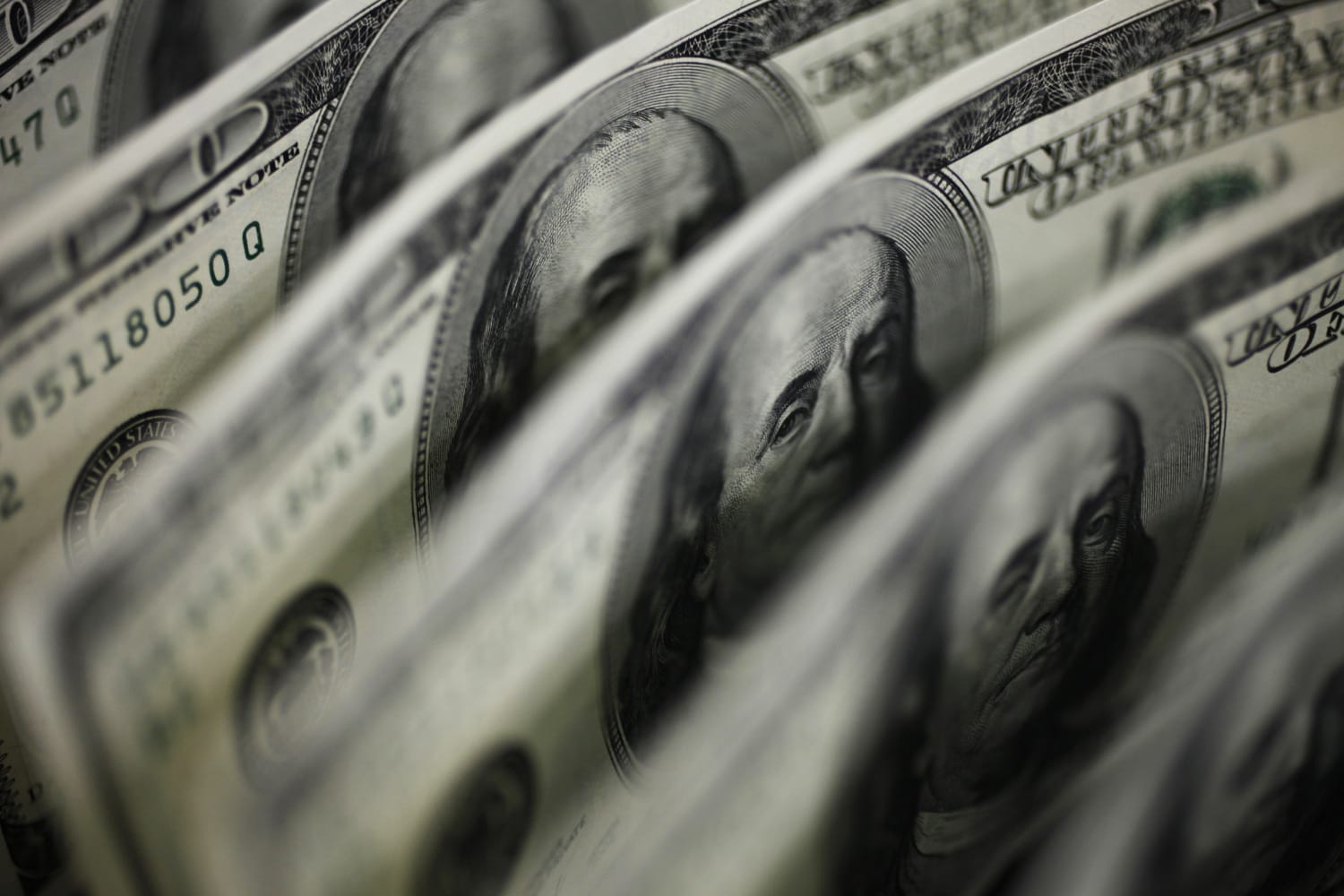
President Joe Biden reportedly plans to propose a near-doubling of the tax on the profits the richest Americans earn when they sell stocks — but tax experts say it’s not as simple as soaking the rich.
Unlike ordinary income, which has a top marginal tax rate of 37 percent, the top tax on long-term capital gains — that is, the profit an investor makes when they sell a stock after holding it for at least a year — is 20 percent, plus a 3.8 percent Medicare surtax added after the passage of the Affordable Care Act. Biden may call for increasing the top capital gains tax to 39.6 percent, plus the surtax, sources told NBC News.
Proponents of the increase say bringing taxes on investment income in line with taxes levied on wages — the top marginal tax rate for wages is currently 37 percent — helps to equalize the playing field between the richest Americans and everyone else. An analysis by the Urban-Brookings Tax Policy Center found that 75 percent of capital gains are earned by the wealthiest 1 percent of taxpayers, and 56 percent of the gains go to the top one-tenth of one percent. All but 8 percent of capital gains are realized by the top 20 percent of earners.
“The vast majority of people, the only assets they own are their house and their 401(k),” said Eric Toder, co-director of the Urban-Brookings Tax Policy Center. “So the capital gains really only applies to assets that are held outside those forms, and those are generally held by higher-income people,” he said.
“Most people are making their income from working, not investing.”
“Most people are making their income from working, not investing,” said Bill Smith, managing director of the National Tax Office of business services and consulting firm CBIZ MHM. “The more invested you are in the market, the more you benefit. Which is why they’re saying that it’s kind of a benefit to the 1 percenters as it currently stands,” he said.
Detractors say raising the top capital gains tax to nearly 40 percent would either cause the 1 percent to dump stocks before the increase kicked in, or create an artificial incentive for rich investors to hold stocks they would otherwise sell and distort the market. (Money invested in tax-preferred accounts like 401(k)s would not be affected.)
Tax experts say there are legitimate reasons for taxing capital gains at a lower rate, primarily having to do with inflation and market efficiency, but raising it too high could prove counterproductive by short-circuiting the market activity that would trigger the tax and yield revenue for federal coffers. There is research that points to a level at which a higher capital gains tax yields diminishing returns, with around 28 or 29 percent the upper limit.
As such, most observers think the 39.6 percent figure is an aspirational number meant to appeal to Democratic ideologues and intended as a starting point for subsequent negotiations. “It’s important to remember the Senate is 50-50, so the Democrats have a razor-thin margin right now. You’re going to have a lot of back and forth on this. This is a trial balloon,” said Stein Olavsrud, executive vice president at FBB Capital Partners.
The complexity of the tax code in general means that political messaging from both sides threatens to edge out the facts. A new survey from data intelligence company Morning Consult found that most registered voters have little, if any, understanding of how capital gains are taxed. When asked about their familiarity with the phrase “capital gains tax,” only about one in four respondents said they knew exactly what that referred to, while nearly two-thirds said they had a limited idea of what it means, and 10 percent were unfamiliar with the term. Nearly four in 10 respondents said they believed that ordinary income and capital gains should be taxed at different rates.
Adding to that dynamic is the fact that many of the nation’s wealthiest Congressional districts vote blue, which means lawmakers from those areas will be reluctant to alienate voters and potential donors. “To me, this is not strictly a Democrat versus Republican issue. I think it’s going to be much deeper than that,” Olavsrud said.
“There are a lot of powerful people whose support Biden needs in order to get any bill through Congress. They’re going to find some negotiating middle ground,” said Ben Koltun, director of research at consulting firm Beacon Policy Advisors. “They want to keep their gains with those upper-middle class suburban voters,” he said. “Especially when it’s such a closely divided Congress, the bully pulpit only goes so far.”
Source: | This article originally belongs to Nbcnews.com










